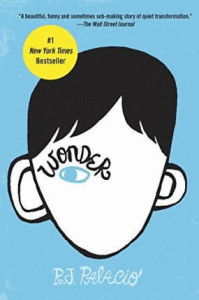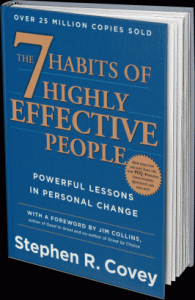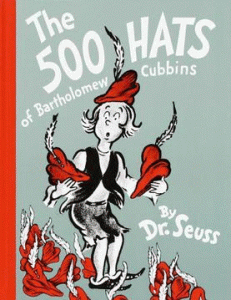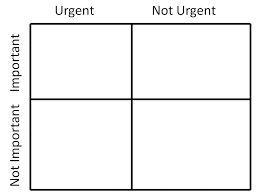
“If you have a choice between being right and being kind, choose kind,” spoken by Dr. Wayne W. Dyer in R. J. Palacio’s seminal text, Wonder has not only resonated with many but has sparked the #choosekind challenge movement inspiring people to pledge ” to create and spread more kindness in the world.”

Wonder – R. J. Palacio
While there are those who need such an inspiration and motivation to be kind to others, I think kindness is an innate prerequisite for being a teacher as we put ourselves aside to meet the needs of the 30 little ones in our care, and teacher librarians must have a double dose as we interpret our role as one of service to not only a school of students, rather than just a class, but also the staff. Our days, and often our nights, are swallowed by trying to anticipate, interpret and meet the requests and needs of so many that in being kind to them we are often being unkind to ourselves.
We try to be all things to all people in our complex role that embraces both teacher and librarian with so many stops and tangents in between, perhaps afraid that if we are not, if we miss helping someone it will be the beginning of the end for the role in the school. We know that when budgets are under siege administrators look to the ‘peripheral’ staff to cut first and it’s often the TL whose job is the first to be questioned. But while we are trying to be kind to others we neglect to be kind to ourselves, beginning a spiral that can end up with us being unable to be kind to anyone.
Back in 1996 as I first started the transition from a classroom teacher of 24 years to an apprentice TL , an astute principal introduced me to the works of Stephen Covey and, in particular, The 7 Habits of Highly Effective People.

The 7 Habits of Highly Effective People – Stephen R. Covey
I read it from cover to cover and back again – the first of this sort of text I had ever read – and while all the habits resonated and taught me much, one became the guiding principle for my life… begin with the end in mind.
To quote Covey…
Habit 2 is based on imagination–the ability to envision in your mind what you cannot at present see with your eyes. It is based on the principle that all things are created twice. There is a mental (first) creation, and a physical (second) creation. The physical creation follows the mental, just as a building follows a blueprint. If you don’t make a conscious effort to visualize who you are and what you want in life, then you empower other people and circumstances to shape you and your life by default. It’s about connecting again with your own uniqueness and then defining the personal, moral, and ethical guidelines within which you can most happily express and fulfill yourself.
Understanding and accepting this led to goal-setting so “the steps that I took were going in the right direction” – goals which led me through a successful transition at a traumatic time in my life when my very teaching career seemed in doubt; through discovering that teacher librarianship fitted me like the proverbial glove and studying and gaining three masters degrees; through the need to give back and mentor other ‘apprentice’ TLs; and through to the final goal of “being able to retire from school-based work satisfied and still intact at the end of 2016”. However, when I realised that I would not meet the “intact” part of that goal if I continued the way I was, I brought the end date forward and finished at the end of 2015 with ‘intact” intact – barely.
Even though in 2015 I was in a part-time position it was too easy to fall into a full-time mentality and a range of circumstances meant that I was not being kind to others in the way I should be, simply because I was not being kind to myself.
Because that is the key – if we are not kind to and take care of ourselves then we cannot be kind to and take care of others.
But if we are to be kind to ourselves we need to identify those issues that trigger unkindness so that they can be addressed.
While each of us is unique, it’s fair to generalise that there are at least four that are common…
- matching the ideality of university to the reality of school
- wanting to be a jack-of-all-trades and master of all
- time management
- work-life balance
ideality vs reality
We know that learning is most effective when
- there is a need and purpose to learn
- the learning is within a real-life context
- it is based on what we already know and believe
- there is an expectation of success
- there is opportunity to apply and practise the new learning
- it offers clarity and understanding
- it is owned by the learners
We know from our university research and readings that the ideality of the teaching role of the TL is at its best when delivered within the context of classroom learning, planned and taught in collaboration with the classroom teacher so that the TL’s specialist subject of information literacy -in its broadest context – is embedded into the everyday learning in the classroom, can be readily transferred to other situations and support and guidance is offered at the point of need.
But for a range of reasons, the reality is vastly different with such things as
- fixed timetables
- students and classes coming infrequently for short periods
- teaching in isolation to cover teacher prep time
- lack of time to consult and plan with classroom-based teachers
- lack of a library “curriculum”
- lack of understanding of and appreciation for the role of the TL within the school
If we are to be kind to ourselves we have to manipulate what we know to match what we have so that it is win-win for everyone (Covey’s Habit #4) The solution, and the pathway to it, will be unique to each of us but it is important that we work to achieve something that we can work with comfortably so we don’t start the day frustrated and on edge. That’s not to say we abandon the ideal, but if we can develop a plan that will move more towards it -‘begin with the end in mind’- and accept that it might be a long journey to its achievement then we are more likely to accept the current lot, work with it and have some peace of mind.
jack-of-all-trades
The reason that this blog is called “500 Hats” is because that reflects the complexity of our role, and we tend to think that we must be across every aspect and like Bartholomew Cubbins, each time we take one hat off another one appears. In addition, each person perceives not only our role differently but also sees their needs as the priority. So often we are torn, if not shredded, and left wondering if we will ever get all the pieces together.

The 500 Hats of Bartholomew Cubbins – Dr Seuss
Joyce Valenza writes about this dilemma in her blog post A Belated Confession , offering insight into the issue and revealing that even when we see our hero colleagues looking like ducks swimming serenely along, they, too, are paddling like crazy to stay on top of the water. She offers a personal survey to help us reflect on the key aspects of our role, and help us develop some priorities that are in alignment with both our school and personal mission statements, strategic plans and personal goals. Areas of strength can be identified as well as those for which we might need to establish a professional learning plan.
Rather than working harder we can learn to work smarter.
time management
There always seems to be more work than time left at the end of the day and as one task tends to lead to another not previously considered, the to-do pile mounts up and up and up and the must-do task list gets longer and longer
It was scary how fast my part-time position became a full-time commitment as I effortlessly slipped back into the practice of taking stuff home just so I could stay ahead. In my previous position, my home work was confined to creating an award-winning, cutting edge school website alongside working through three masters degrees, but this time with the library management system online, easy access to SCIS, Scootle, and a zillion other resources, social media and so on, apart from the 150km commute, nothing seemed to separate my work life from my home life. And with a hubby who worked even more ridiculous hours than I did, it was easy to slip into old habits and watch that to-do list grow again.
Once again, my friend Stephen Covey came to my aid. I returned to his time management matrix to start identifying priorities and getting things back under control and practise Habit 3 – putting first things first.

Time Management Quadrant –Stephen R. Covey
While Covey explains its function and operation fully in his book, I learned to ask myself these questions whenever a new task popped up…
- Does this need to be done now or can it wait?
- Is it more important that what I am doing right now?
- Is it more important than the other things I have planned for today?
- Will doing this help me achieve what needs to be done in the short, medium and long-term?
- Does it require my time and attention or can I delegate?
Setting work-based priorities has to be tied into your strategic plan so you are not suddenly confronted by something that has moved into Urgent and Important because it was swamped by other things. The big picture has to remain as clear as the daily detail so if, for example, you are required to write an annual report or contribute a page to the school yearbook, start on the first day of first term taking photos, jotting notes and so forth so that when it is due most of the work is done.
Because being a TL encompasses two distinct sides of our profession, even though the T side should be the predominant side we must also have time for the L side if we are not to end up in a series of crises. Workplace awards should delineate a certain percentage of at-work time that is set aside for administrative duties, a time that is independent of lesson preparation and planning. You need to know what your individual rights are and ensure that these are delivered by your administration. If you are forced into a corner and are not given sufficient time then enlist the help of the staff to help you determine your priorities by sending out an Information Needs Audit. Such a document not only educates your colleagues about the extent of what you do on a daily, weekly and monthly basis, responses will help you establish priorities and also act as a defence if your time allocations are questioned.

Keeping all the balls in the air is a juggling act but by being pro-active with time management, even down to creating a daily timetable for your at-work time, you can be much kinder to yourself than you have been.
work-life balance
Anyone who is a teacher, is married to a teacher or even knows a teacher knows that the job is not “9 till 3” despite popular opinion. Those hours are our performance time, the other 18 hours in the day are for the preparation and evaluation of that performance (and the performance of others.) It is so easy to slip “stuff that can wait” – the important but non-urgent things – into a basket to lug home at the end of the day, often returning to school the next day still in the basket untouched.
Each of us has a different way of trying to achieve that magical work-life balance -if we ever do – and we must know ourselves if we are to set up an effective and efficient routine. Some like to stay at school until the work is done and take nothing home; others are so tired at 3.00pm they prefer a break and to attend to what needs to be done at home, either early or late depending on our circumstances and body clock. But whichever method we choose it needs to work for us and our families. The consequences are too great if they don’t.
Even if we think we are indispensable and “my students need me”, the truth is that they don’t need you as much as your family does. There are thousands of teachers but most kids only have one mum or one dad. A brutal but powerful way to put things in perspective is to imagine what would happen if you were involved in a major car accident or struck down with a serious disease. Whose lives are likely to be the most impacted?
If you find it hard to let go of school work and feel guilty if you take time out to go on a family outing because there are reports to write, assignments to mark, books to accession or whatever, go anyway even if you ‘justify’ the time by imagining how what you experience and learn can add to what you offer the students in the morning. Anything we do to enrich our own lives also enriches that of our students because it is something more we can bring to the table.
When I finally retired from school-based work in 2015 (having been practising retirement since July 2006) I still had stuff in my important-non-urgent pile on the floor of my study, but, amazingly the school continued without it being done and after tripping over it for a few months I finally sorted it, consigning most of it to the recycling bin. AND THE WORLD STILL TURNED.
At last I had learned how to #choosekind